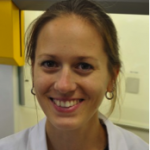About
The pathogenic yeast Cryptococcus neoformans undergoes morphological changes in cell size during host interaction, producing a high percentage of Titan cells (> 10 μm) instead of the typical size 5 to 7 μm cells. We reported previously (Hommel et al., Plos Pathogens 2018) in vitro conditions that reproducibly produce Titan cells, then identify environmental factors and gene regulators of their biogenesis.
Titan cells generated in vitro harbor the four main characteristics of Titan cells produced in vivo: i) cell size >10 μm ii) polyploidy with a single nucleus iii) large vacuole iv) thick cell wall and remodeled capsule. In our protocol, the major triggers of Titan cells formation are nutrient starvation, hypoxia, and cell density dependent quorum sensing factors. We explored genetic factors for Titan cells formation using three approaches. First, using H99 lineage strains with known genetic differences, we showed that Titan cell formation was dependent on LMP1 and SGF29genes. Second, by screening a gene deletion collection, we confirmed that PKA signaling pathway genes were required to generate Titan cells in vitro and that the TSP2, USV101 and PKR1genes negatively regulated Titan cell formation. Finally, we confirmed the critical role of the Pkr1 protein by the analysis of clinical isolates with spontaneous Pkr1 loss-of-function. This standardized in vitro protocol is a technical advance and provide new insights into yeast to Titan cell biogenesis and pathobiology.
Interestingly, three different protocols for Titan cell generation were generated and published together (in Plos Pathogens), suggesting the Titan cells generation is triggered by different environmental conditions.
We are currently investigating the transcriptional modifications using the three protocols with the aim to identify the most important pathways involved in Titan cell generation.

